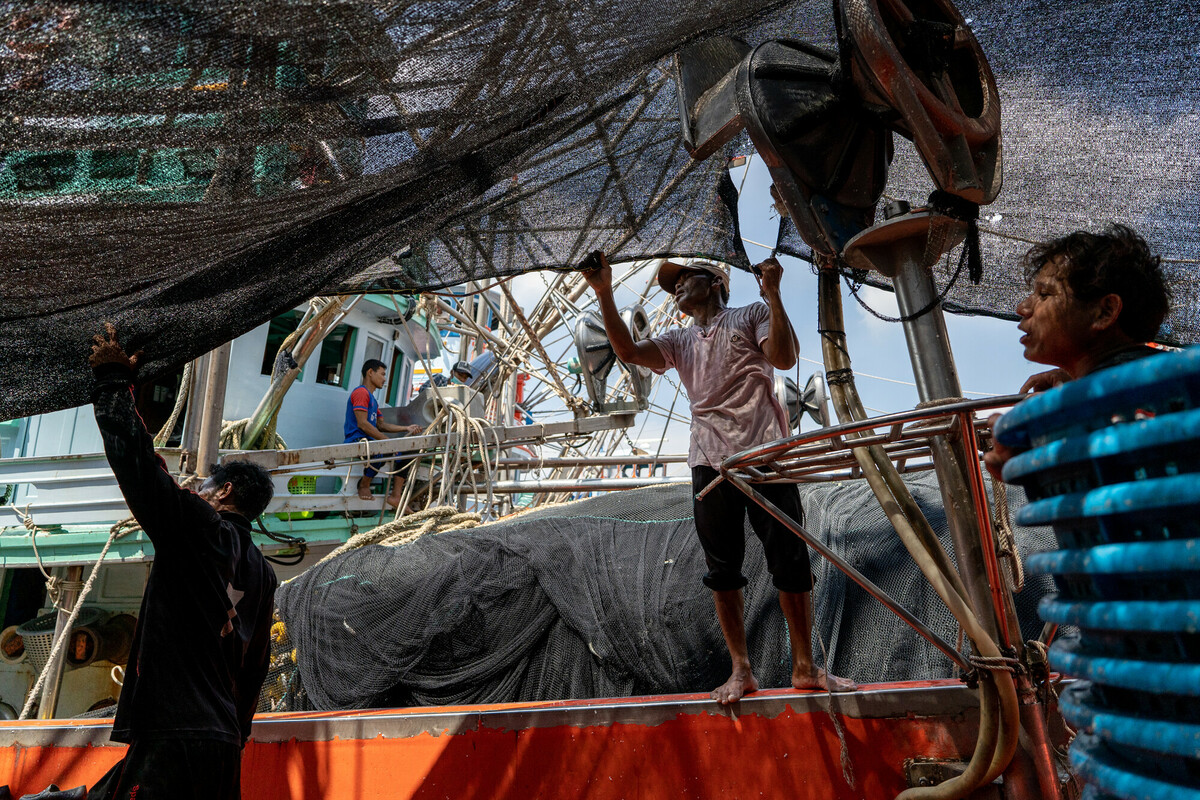Welcome to the Freedom Fund’s monthly bulletin designed to bring you new and compelling research from the global anti-slavery movement.
The prevalence of forced labour among employed adults in Nigeria
The International Labour Organization (ILO) and the National Bureau of Statistics of Nigeria draw on surveys with employed adults from 16,650 households across Nigeria to measure the prevalence of forced labour. They estimate that over 617,000 adults (73% male), or 5.2 out of every 1,000 adults, are subjected to forced labour. The study finds that the agriculture and service sectors employ the majority of forced labour, with the former accounting for 41% of estimated total male forced labour and the latter accounting for 47% of estimated total female forced labour. The study indicates that individuals, irrespective of their education levels, are susceptible to forced labour due to household debts and exposure to negative shocks.
Rising rates of child marriage among displaced populations in the Middle East
A study led by Johns Hopkins University delves into the drivers and consequences of child marriage among Syrian refugees, internally displaced people in Iraq and host communities in the Kurdistan Region of Iraq. Interviews and focus groups with 57 stakeholders, including 36 child marriage survivors, reveal major risk factors such as the lack of job opportunities, financial struggles, permissive social norms for girls in early marriage and childbearing, and care-seeking for girls from sexual or physical violence. The study sheds light on the negative effects of child marriage on schooling and reproductive health, recommending income, education and life skills opportunities to reverse these worrying trends.
The European Union’s energy policy could increase modern slavery vulnerabilities of miners
Research led by the Technical University of Denmark analyses the social and environmental impacts of the European Union (EU) Climate Law. Using supply chains and extraction data of ore and 34 critical minerals, researchers estimate that by 2040, between 15,000 and 89,000 African miners will face a higher risk of modern slavery due to rising EU demand for raw materials to produce clean energy technology. This risk is particularly concentrated in countries such as the Democratic Republic of Congo, Cameroon and Nigeria. Challenges in securing these minerals in water-scarce areas of Australia, Chile, Kazakhstan and South Africa are likely to worsen environmental and community issues.
Exploitation of migrants on UK’s seasonal workers scheme (SWS)
Focus on Labour Exploitation (FLEX) investigates recruitment-related risks stemming from the UK’s SWS, based on surveys of over 400 workers and interviews with 15 key stakeholders. The findings reveal that 72% of the workers took out a loan to cover the costs of coming to the UK for work, while 77% reported earning less than what was promised, and many indicated not receiving contracts in a language they understand. To address these issues, the study recommends a timely review of the SWS scheme, labour shortages, and the routes and operators involved in recruitment.
Widespread online sexual abuse and exploitation of children (OSAEC) in the Philippines
Research led by Justice and Care examines the occurrence of OSAEC in the Philippines. Based on a review of 36 convicted case files, interviews with 26 experts, and discussions with 21 local caseworkers, the study reveals that economic necessity, the lure of “easy money”, and financial incentives push children into OSAEC activities. Factors such as the justifications made by facilitator offenders (such as “no touch, no harm”), delays in legal proceedings, stigmatisation, and survivors’ concern about their privacy, were identified by the research as contributing to the prevalence of OSAEC in the Philippines.
Read on
Cornell University evaluates a peer education program aimed at supporting domestic workers in New York to advocate for better working conditions and promote solidarity in the movement.
Queen’s University Belfast undertakes a systematic review of the effectiveness of school-based programs to prevent child sexual abuse, drawing on 13 studies from six countries.
The University of Sussex offers a closer look into the European Union Directive on Corporate Sustainability Due Diligence (CSDD) to highlight its strengths and limitations.
Freedom Fund news
The Freedom Fund is celebrating our ten-year anniversary! Explore the progress made and remaining challenges in combating modern slavery.
Visit our Newsroom for more updates.
Research library
Visit our Slavery Research Library to access anti-slavery resources from across the globe.
Contact
The Slavery Research Bulletin is produced monthly by the Freedom Fund, a global fund with the sole aim of helping end modern slavery.
Research being featured in this bulletin does not equal endorsement by the Freedom Fund.
Click here to sign up to the Slavery Research Bulletin mailing list.
Photo credit: Jittrapon Kaicome / The Freedom Fund



